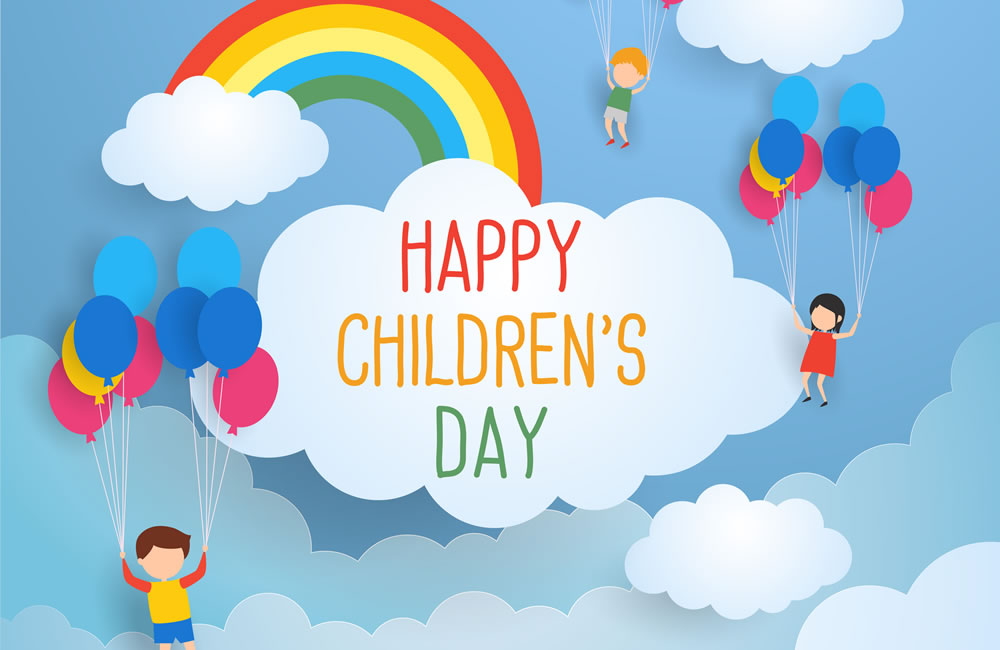Celebrate Children’s Day Today 4 August
Published on Tuesday, 04 August 2020
Last updated on Wednesday, 21 October 2020

Today 4 August is National Aboriginal and Torres Strait Islander Children’s Day and it’s not too late to get involved!
The theme for this year’s event is ‘We are the Elders of tomorrow. Hear our voice’, which celebrates the uniqueness and importance of the knowledge and wisdom of Aboriginal and Torres Strait Islander peoples, starting in childhood. Hearing children’s voices today plays a crucial role in their development towards being influential Elders and leaders of the future.
It is an opportunity for us to show our support for Aboriginal and Torres Strait Islander children, as well as learn about the crucial impact that culture, family and community play in the life of every Aboriginal and Torres Strait Islander child.
History of Children’s Day
The first National Aboriginal and Islander Children’s Day was on 4 August 1988 and was set against the backdrop of protests led by Aboriginal and Torres Strait Islander people and their supporters during the bicentennial year. Aboriginal and Torres Strait Islanders peoples felt a day was needed to celebrate their children, to give them confidence and make them feel special and included.
The date 4 August was historically used to communally celebrate the birthdays of Aboriginal and Torres Strait Islander children who were taken from their families at a young age, without knowing their birthday: The Stolen Generations.
Children’s Day has grown larger every year, becoming a major event in the lives of Aboriginal and Torres Strait Islander children, families and community organisations, including early childhood services.
In communities throughout Australia this special day is celebrated with activities such as cultural events, open days, arts and crafts, storytelling, face painting, concerts, morning teas and community barbecues.
Why is Children’s Day important?
While most Aboriginal and Torres Strait Islander children are thriving and growing up strong in their cultures, with support from their families and communities, SNAICC says many face ongoing challenges stemming from colonisation and its effects. This includes discrimination, poverty, systemic removal, intergenerational trauma, dislocation from land and culture, and community disempowerment.
In addition, The Family Matters Report 2019 reports that Aboriginal and Torres Strait Islander children are 2.5 times more likely to be developmentally vulnerable early in life than non-Indigenous children, and only half as likely to access early child care services.
While rates for preschool enrolments (4-year-olds) are relatively high for Aboriginal and Torres Strait Islander children, attendance rates are low in each state and territory. Furthermore, children who are developmentally vulnerable are less likely to do well at school, and are more likely to leave school early and have poorer life outcomes.
To achieve equality, SNAICC says we must address these challenges through a holistic approach, considering Aboriginal and Torres Strait Islander children’s wellbeing, safety and development.
It’s not too late to get involved in celebrating Children’s Day:
-
Download some of the beautiful Children’s Day posters to adorn the walls of your service
-
View some of the videos created by the Elders of tomorrow
-
Download the What does culture mean to me resource and have fun thinking and talking about the meaning of culture
-
Share books about Aboriginal and Torres Strait Islander children, families and their experiences
-
Learn and perform an Acknowledgement of Country
-
Print and complete activity sheets
-
Use a few simple materials and try your hand at weaving on a branch
Click here for a stack of additional ideas courtesy of SNAICC.
Related Articles

How to celebrate indigenous languages in your centre
How languages link us to our individual identity, traditional culture, memory and the importance of Indigenous languages in your service.

Embracing diversity in Harmony Week
A range of age appropriate activity suggestions for celebrating Harmony Week with children in early childhood settings.

The need for more diverse books in child care
Research shows early learning centres often lack books with diverse central characters, learn how this impacts children from culturally and linguistically diverse backgrounds.

